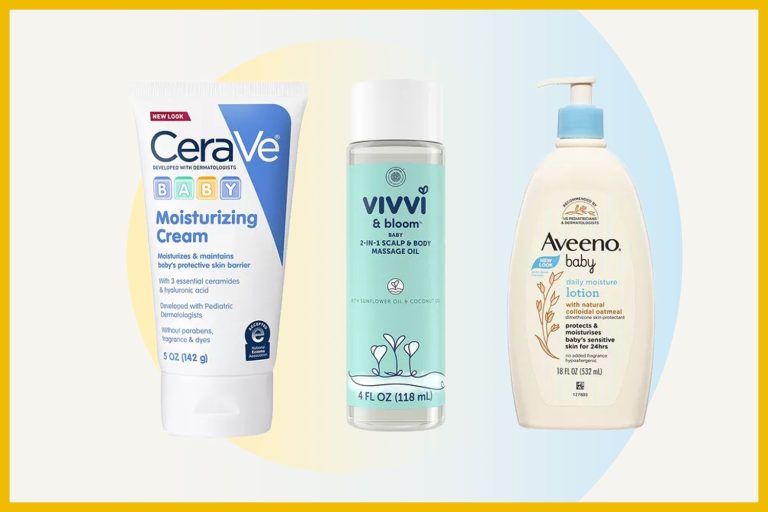9 Best Hair Oils for Growth, Frizz Control, and Healthy Scalp Care
Looking to transform your hair from dull and lifeless to shiny and vibrant? The secret might just be in the bottle. Hair oils have been trusted for centuries to nourish, protect, and revitalize your locks. Whether you’re dealing with dryness, frizz, or just need a little extra shine, the right hair oil can make all the difference.
1. Coconut Oil: The All-Rounder
Coconut oil is a staple in hair care routines for its versatile benefits. Let’s explore how it can enhance your hair growth and the best methods to use it.
Benefits for Hair Growth
Stimulates hair follicles for faster growth. Coconut oil penetrates deeply into the hair shaft, providing essential nutrients like lauric acid and vitamins E and K. These elements promote a healthy scalp environment, essential for hair growth. Reduces protein loss, preventing hair breakage. According to a study published in the Journal of Cosmetic Science, coconut oil significantly reduces protein loss compared to other oils like mineral or sunflower oil.
Best Ways to Use Coconut Oil
Apply as a pre-wash treatment. Massage warm coconut oil into your scalp and hair, leave it for at least 30 minutes, then shampoo and condition as usual. Use it as a leave-in conditioner. Apply a small amount of coconut oil to the ends of your hair to tame frizz and add moisture. Create a hair mask. Mix coconut oil with honey or avocado for an intensive moisturizing treatment. Apply it to your hair, let it sit for 20-30 minutes, then rinse thoroughly for softer, shinier locks.
2. Argan Oil: Liquid Gold for Frizz Control
Often called “liquid gold,” argan oil is celebrated for its frizz-taming capabilities and deep conditioning properties.
Key Vitamins and Minerals
Packed with vital nutrients, argan oil boasts high levels of vitamin E, essential fatty acids, and antioxidants. These components work together to moisturize your hair, reduce breakage, and promote shine. Vitamin E in particular helps restore damaged hair and protect it from further harm, while fatty acids smooth frizz and add a healthy luster.
Application Techniques for Optimal Results
To maximize the benefits of argan oil, use it correctly. Apply a few drops to damp hair, focusing on the ends where damage typically occurs. For a deeper treatment, massage argan oil into your scalp and leave it overnight. You can also mix it into your conditioner for an extra boost of moisture. Use sparingly to avoid weighing down your hair, especially if it’s fine or thin.
3. Castor Oil: Boost for Hair Thickness
Castor oil’s thick consistency and high ricinoleic acid content make it a popular choice for promoting hair growth. This versatile oil can significantly improve hair thickness when used correctly.
Promoting Scalp Health
Massaging castor oil into your scalp can enhance circulation, leading to healthier hair follicles. The oil’s antimicrobial properties help to prevent dandruff and other scalp infections, creating an optimal environment for hair growth. Apply a small amount to your fingertips and gently massage your scalp for 5-10 minutes before rinsing it out.
Mixing with Other Ingredients for Enhanced Benefits
For added benefits, mix castor oil with other oils like coconut or olive oil. Combining these oils can provide your hair with a broader spectrum of nutrients and improve manageability. For example, mix equal parts castor and coconut oil, heat the blend slightly, and apply it from the roots to the tips. Wrap your hair in a warm towel for 30-60 minutes to allow deeper penetration before washing it out. This routine can help fortify hair strands and enhance overall thickness.
4. Jojoba Oil: The Scalp Soother
Jojoba oil stands out as a versatile and effective conditioner for all hair types. Rich in vitamins and minerals, it’s known for its scalp-soothing properties.
Mimicking Natural Oils
Jojoba oil closely mimics the sebum produced by your scalp. This resemblance helps regulate sebum production, making it ideal for both oily and dry scalps. Massage a few drops into your scalp to balance oil levels naturally. Its similarity to your natural oils means it gets absorbed easily, providing hydration without a greasy residue.
Suitable for All Hair Types
Jojoba oil works equally well for straight, wavy, curly, and coily hair. It helps detangle knots and reduces frizz, making your hair more manageable. For fine hair, apply sparingly to avoid weighing it down. It’s especially beneficial for curly and coily hair, as it provides the moisture these hair types crave without build-up.
5. Olive Oil: The Deep Conditioner
Hydration and Strength
Olive oil deeply penetrates your hair shaft, offering unmatched hydration and strength. Rich in essential fatty acids and vitamins E and K, it nourishes your hair from the inside out. If you have dry hair, olive oil provides lasting moisture and prevents splitting and breakage. According to a study published in the Journal of Cosmetic Science, olive oil’s monounsaturated fats improve hair elasticity and flexibility. Using olive oil regularly can transform brittle strands into smooth, resilient hair.
Heat Infusion Methods
Heat infusion maximizes olive oil’s conditioning effects by opening your hair cuticles. Start by heating two to three tablespoons of olive oil in a microwave-safe bowl for 20-30 seconds. Ensure the oil is warm, not hot, to avoid burns. Apply the warm oil to your scalp and hair, focusing on the ends. Cover your hair with a shower cap and wrap it in a warm towel. This method allows the oil to deeply penetrate and condition, leaving you with softer, more manageable hair. For optimal results, leave the oil on for 30-60 minutes before rinsing and shampooing thoroughly.
6. Almond Oil: For Silky Smooth Strands
Looking for silky smooth hair? Almond oil could be your perfect match. This lightweight oil feels luxurious without weighing your hair down.
Rich in Vitamin E
Almond oil, rich in Vitamin E, effectively nourishes and protects your hair. Vitamin E is known for its powerful antioxidant properties, which help combat environmental stress on your hair. This vitamin also promotes hair growth and repairs damaged hair follicles. Applying almond oil regularly can result in stronger, healthier, and shinier hair.
Combining with Essential Oils
Mixing almond oil with essential oils can amplify its benefits. For instance, combining it with lavender oil can add a calming scent while enhancing hair growth. Adding a few drops of rosemary oil can help combat dandruff and stimulate blood circulation to the scalp. Just blend a few drops of your chosen essential oil with almond oil, massage it into your scalp, and let it work its magic.
7. Grapeseed Oil: Lightweight Moisturizer
Grapeseed oil is perfect if you’re looking for a light, non-greasy option to keep your hair hydrated and shiny. This oil is known for its rapid absorption rate and multiple hair benefits.
High Antioxidant Content
Grapeseed oil is packed with antioxidants like Vitamin E and linoleic acid. These antioxidants can protect your hair from free radical damage and environmental stressors. Just a few drops of grapeseed oil can help enhance your hair’s elasticity and overall health.
Ideal for Oily Hair
Grapeseed oil is remarkably light, making it a great choice for those with oily hair. Unlike heavier oils, it won’t weigh your hair down or make it look greasy. Instead, grapeseed oil balances your scalp’s natural oils, reducing excess oil production. Use it as a leave-in conditioner or a scalp treatment for the best results.
8. Tea Tree Oil: The Anti-Dandruff Solution
Tea tree oil is renowned for its anti-dandruff properties and ability to maintain a healthy scalp.
Scalp Cleansing Properties
Tea tree oil’s natural antiseptic and anti-fungal qualities help cleanse the scalp effectively. It removes dead skin cells and clears hair follicles, reducing the buildup that often leads to dandruff. Using tea tree oil regularly can leave your scalp feeling fresh and revitalized, promoting overall hair health.
Precautions and Best Practices
Always dilute tea tree oil with a carrier oil like coconut or jojoba to avoid irritation. Perform a patch test on your skin before applying it to your scalp. Use it sparingly—just a few drops mixed with your regular shampoo can significantly improve scalp health without causing adverse reactions.
9. Rosemary Oil: Stimulating Hair Growth
Rosemary oil’s gained popularity for its ability to stimulate hair growth. It’s essential to know how this oil benefits your scalp and encourages lush hair.
Enhancing Circulation in the Scalp
Improving blood circulation is one of the primary benefits of rosemary oil. Applying rosemary oil to your scalp can increase blood flow, which in turn delivers more oxygen and nutrients to hair follicles. This boosts hair growth and strengthens the strands. Massaging your scalp with rosemary oil also helps to reduce hair fall and can make your hair look and feel thicker.
DIY Rosemary Oil Treatment Recipes
Creating your own rosemary oil treatments at home is simple and effective. Here are a couple of easy recipes:
Rosemary Hot Oil Treatment:
- Mix 2 tablespoons of carrier oil (like olive or coconut oil) with 5 drops of rosemary oil.
- Warm the mixture slightly, but avoid making it too hot.
- Apply it evenly to your scalp and hair, then cover with a warm towel.
- Leave it on for 30 minutes before washing it out with shampoo.
- Combine 2 tablespoons of aloe vera gel with 5 drops of rosemary oil.
- Apply the mixture to your scalp and hair, ensuring full coverage.
- Leave it on for 20-30 minutes before rinsing thoroughly with lukewarm water.
These DIY treatments can enhance the effects of rosemary oil and help you achieve healthier, stronger hair.
Conclusion
Choosing the right hair oil can make a significant difference in your hair’s health and appearance. Whether you’re looking to control frizz condition your hair or promote growth there’s an oil tailored to your needs. Incorporating these oils into your routine can lead to stronger shinier and healthier hair.
Experiment with different oils and methods to find what works best for you. Don’t be afraid to mix and match oils for a customized treatment. Consistency is key so make these oils a regular part of your hair care regimen. Your hair will thank you!
Frequently Asked Questions
What are the benefits of using coconut oil for hair?
Coconut oil is excellent for controlling frizz, conditioning the hair, and preventing damage due to its high lauric acid content.
What makes argan oil good for hair health?
Argan oil is rich in antioxidants, vitamin E, and essential fatty acids, which help to hydrate, soften, and protect hair from styling damage and UV rays.
How does castor oil promote hair growth?
Castor oil contains ricinoleic acid, which improves blood circulation to the scalp and supports healthier, faster hair growth.
Is jojoba oil suitable for all hair types?
Yes, jojoba oil closely resembles the natural oil of the scalp, making it suitable for all hair types while effectively moisturizing without making the hair greasy.
Can olive oil help with dandruff?
Yes, olive oil can moisturize the scalp and reduce dandruff. Heat infusion methods can enhance its effectiveness by opening hair cuticles for deeper penetration.
What are the benefits of grapeseed oil for hair?
Grapeseed oil is lightweight and rich in linoleic acid, making it excellent for moisturizing and strengthening hair without weighing it down.
How does tea tree oil address scalp issues?
Tea tree oil has antifungal and antibacterial properties that help combat dandruff and maintain a healthy scalp environment.
What is rosemary oil known for in hair care?
Rosemary oil is known for stimulating hair growth by enhancing scalp circulation and reducing hair fall, resulting in healthier and stronger hair.
How can I use rosemary oil in a DIY treatment?
Mix a few drops of rosemary oil with a carrier oil like coconut or olive oil, apply it to your scalp, and leave it for at least 30 minutes before washing it out.
Are there any side effects of using essential oils on hair?
While most essential oils are safe, they can cause allergic reactions in some people. Always perform a patch test and dilute essential oils with a carrier oil before use.






